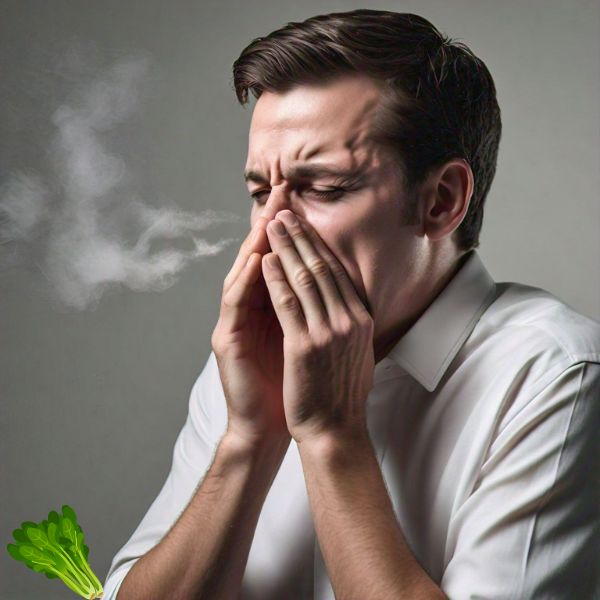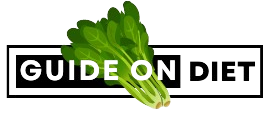The common cold is one of the most frequent ailments, often leaving you with a runny nose, sore throat, and general discomfort. While there’s no cure, several remedies can help ease your symptoms and get you back on your feet quicker. In this article, we’ll explore 15 Proven Remedies to Relieve Cold Symptoms Naturally, from staying hydrated to using over-the-counter medications.
Proven Remedies to Relieve Cold Symptoms Naturally
Soothe with Warm Liquids
While fluids are crucial, warm drinks offer additional comfort when you have a cold. Warm beverages such as herbal teas, broth, or even just hot water with lemon can help soothe an inflamed throat and nasal passages. Medicated hot drinks designed to relieve cold symptoms can provide relief from coughing and nasal congestion.

Prioritize Sleep for Recovery
One of the most important remedies for any illness is sleep. When you’re dealing with a cold, your body needs extra rest to fight the virus. Sleep triggers the production of cytokines, proteins that play a crucial role in immune response and inflammation control. Aim for extra sleep and adjust your schedule if possible to allow your body the time it needs to heal.
Drink Plenty of Fluids
Hydration is key when battling a cold. Drinking lots of fluids helps thin the mucus in your sinuses, making it easier to drain and reducing congestion. Water, herbal teas, and clear broths are excellent options for keeping your mucous membranes moist, preventing that dry, irritated feeling in your nose and throat. Staying hydrated also supports your body’s immune function, helping you recover faster.
Practice Mindful Meditation
Stress weakens your immune system, making it harder to recover from a cold. Incorporating daily meditation can help reduce stress and allow your body to focus on healing. Spend a few minutes each day focusing on your breathing, relaxing your body, and clearing your mind to help ease cold symptoms.
Use Saline Nasal Sprays
Saline nasal sprays are a non-medicated way to relieve nasal congestion. They help to flush out thick mucus, making it easier to breathe and reducing the pressure in your sinuses. Over-the-counter sprays like Sinex Saline Ultra Fine Nasal Mist are an easy, effective solution to clear nasal passages.
Gargle Saltwater for a Sore Throat
Saltwater gargles can soothe a sore throat caused by a cold. The salt helps to reduce inflammation and draw out excess fluid from the tissues in your throat. Dissolve ¼ to ½ teaspoon of salt in an 8-ounce glass of warm water, and gargle several times a day to ease throat discomfort.
[Read more : 8 Effective Home Remedies to Relieve Allergy Cough Naturally]
Add Moisture to the Air
Dry air can irritate your nasal passages and throat, making cold symptoms worse. Using a humidifier or cool-mist vaporizer in your bedroom can add moisture to the air, helping to relieve congestion and ease a sore throat. Just be sure to clean the device regularly to avoid the buildup of mold or bacteria.
Inhale Steamy Air
Breathing in steam can help loosen mucus in your sinuses and relieve congestion. You can create a steam inhalation by sitting in a bathroom with a warm shower running or placing your head over a bowl of hot water. Inhale the steam for a few minutes, being careful not to burn yourself, to help reduce nasal congestion.
Relieve Your Cough with Vicks VapoRub
Coughing can be one of the most persistent symptoms of a cold. For over a century, Vicks VapoRub has been used to relieve coughs. Rub it on your chest and throat, and inhale the soothing vapors containing eucalyptus, menthol, and camphor to help ease your cough and breathe easier.
Try a Neti Pot
A neti pot is an excellent tool for rinsing out nasal passages. It uses a saline solution to flush out mucus and allergens, providing relief from congestion. Simply tilt your head to the side, insert the spout into one nostril, and pour the solution in to let it drain from the other nostril. This method is highly effective for clearing nasal passages, especially when dealing with a stuffy nose.
Adjust Your Sleeping Position
When lying flat, mucus tends to pool in the sinuses, worsening congestion and leading to coughing. Elevating your head with pillows while sleeping helps gravity keep mucus flowing and reduces the likelihood of nighttime congestion. Sleeping in a slightly elevated position can make it easier to breathe and reduce cold symptoms overnight.
Keep Your Environment Clean
Cold viruses spread easily, so it’s essential to keep your living environment clean, especially during cold and flu season. Regularly disinfect frequently touched surfaces such as door handles, light switches, and smartphones. If you’re sick, try to stay home and avoid spreading the virus to others.
Eat Anti-Inflammatory Foods
Certain vegetables, herbs, and spices have anti-inflammatory properties that can help reduce cold symptoms. For instance, red bell peppers and broccoli are rich in antioxidants that support immune function. Spices like garlic and curry contain compounds that can help reduce inflammation, which is especially beneficial when dealing with cold symptoms.
Boost Immune System with Vitamin C
Vitamin C is known for supporting immune function. Eating foods rich in vitamin C, such as oranges, strawberries, red peppers, and broccoli, can give your body the nutrients it needs to fight off a cold. While vitamin C may not prevent a cold, it can help shorten its duration and reduce the severity of symptoms.
Choose the Right Over-the-Counter Medications
While there’s no cure for the common cold, over-the-counter (OTC) medications can help alleviate your symptoms. There are many products which offer a combination of pain reliever, cough suppressant, and fever reducer to ease symptoms. For more severe symptoms you may consider nasal decongestants or expectorants to help loosen mucus.
[Read more : Bodybuilding Diet You Need to Know]
Conclusion
Though there’s no cure for the common cold, following these 15 remedies can significantly reduce your symptoms and help you recover faster. From staying hydrated and using saline sprays to eating immune-boosting foods and choosing the right OTC medications, these simple steps can help ease discomfort and get you back to feeling like yourself. Always remember, if your symptoms persist or worsen, consult a healthcare professional for further guidance.
Frequently Asked Questions
Q 1. Can sneezing and coughing be cured with home remedies?
Answer : While there’s no “cure” for sneezing and coughing, especially if caused by a cold or allergies, several home remedies can help alleviate these symptoms. Drinking warm liquids, using saline nasal sprays, inhaling steam, and taking honey can soothe your throat and ease coughing. For sneezing caused by allergies, staying hydrated and using a humidifier can help reduce irritation in your nasal passages.
Q 2. What over-the-counter medications are best for sneezing and coughing?
Answer : For sneezing, especially due to allergies, antihistamines like loratadine (Claritin) or cetirizine (Zyrtec) can help block histamines and reduce sneezing. For coughing, cough suppressants such as dextromethorphan (found in NyQuil or Robitussin) are helpful for dry coughs, while expectorants like guaifenesin (Mucinex) can help thin mucus and make a productive cough more effective.
Q 3. How can I stop sneezing caused by allergies?
Answer : To reduce sneezing from allergies, avoid exposure to allergens such as dust, pollen, or pet dander. Regular cleaning, using an air purifier, and washing bedding frequently can help. Over-the-counter antihistamines and nasal sprays are also effective. For persistent symptoms, consulting an allergist for potential treatments like allergy shots (immunotherapy) may be beneficial.
Q 4. Are there natural treatments for coughing?
Answer : Yes, several natural remedies can help relieve a cough. Honey is a well-known remedy for soothing a sore throat and reducing coughing, especially in children. Ginger tea, saltwater gargles, and staying hydrated with warm liquids can also help ease a cough. Inhaling steam can loosen mucus and clear nasal passages, providing relief from a cough associated with congestion.
Q 5. When should I see a doctor for sneezing and coughing?
Answer : If sneezing and coughing last more than 10 days, or if they’re accompanied by high fever, shortness of breath, chest pain, or thick yellow/green mucus, you should see a doctor. These could be signs of a more serious condition, such as a respiratory infection, sinusitis, or asthma. Persistent coughing may also indicate conditions like bronchitis or allergies that require medical attention.

1 thought on “15 Proven Remedies to Relieve Cold Symptoms Naturally”